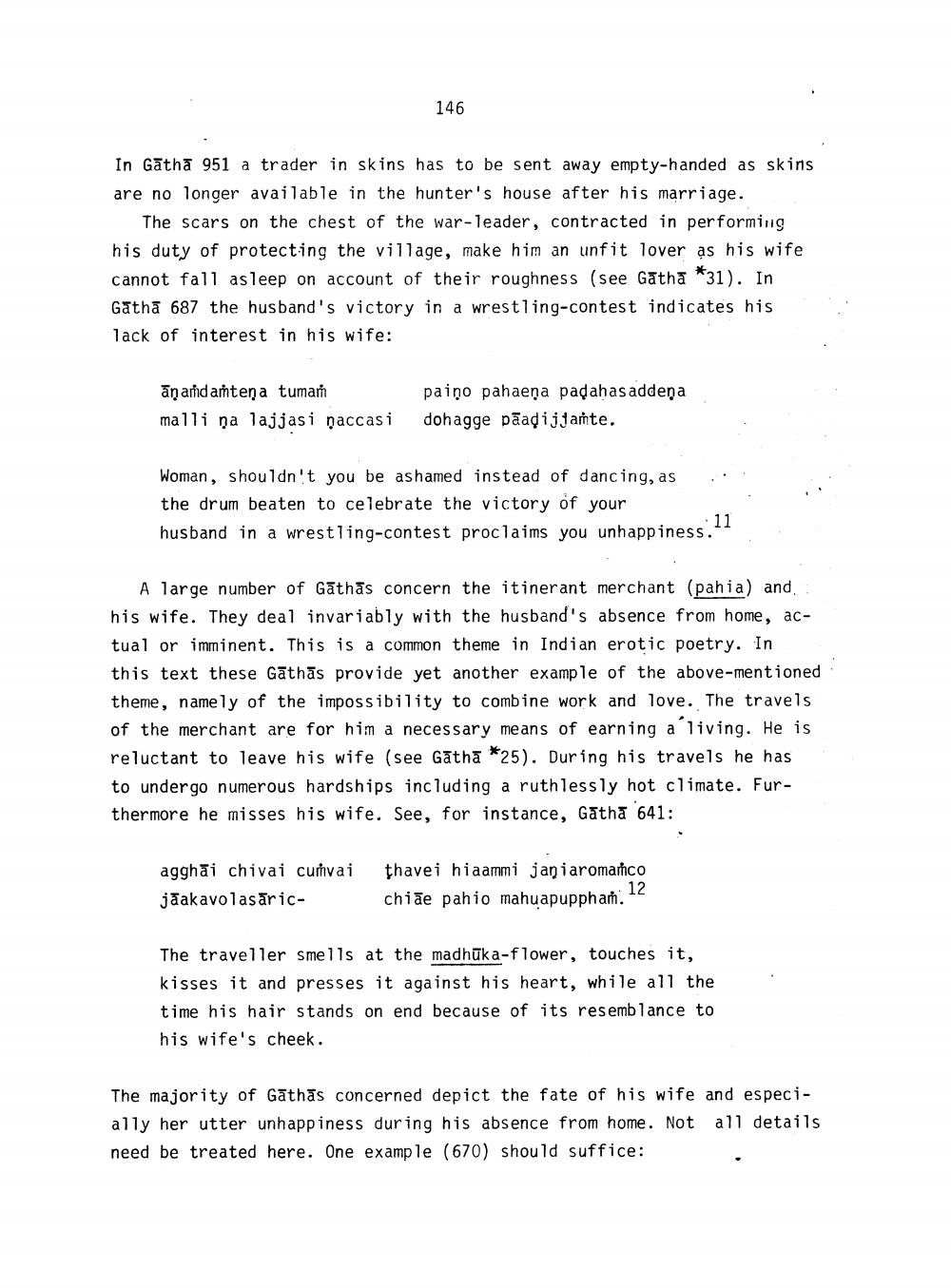________________
146
In Gātha 951 a trader in skins has to be sent away empty-handed as skins are no longer available in the hunter's house after his marriage.
The scars on the chest of the war-leader, contracted in performing his duty of protecting the village, make him an unfit lover as his wife cannot fall asleep on account of their roughness (see Gatha *31). In Gathā 687 the husband's victory in a wrestling-contest indicates his lack of interest in his wife:
āņard amtena tumam malli na lajjasi naccasi
paino pahaeņa padahas addeņa dohagge pāadijjarte.
.
Woman, shouldn't you be ashamed instead of dancing, as the drum beaten to celebrate the victory of your husband in a wrestling-contest proclaims you unhappiness.
A large number of Gathas concern the itinerant merchant (pahia) and, his wife. They deal invariably with the husband's absence from home, actual or imminent. This is a common theme in Indian erotic poetry. In this text these Gathās provide yet another example of the above-mentioned theme, namely of the impossibility to combine work and love. The travels of the merchant are for him a necessary means of earning a living. He is reluctant to leave his wife (see Gātha *25). During his travels he has to undergo numerous hardships including a ruthlessly hot climate. Furthermore he misses his wife. See, for instance, Gātha 641:
agghāi chivai cuộvai jāakavolasaric
thavei hiaammi janiaromasco chi e pahio mahuapuppham.
The traveller smells at the madhūka-flower, touches it, kisses it and presses it against his heart, while all the time his hair stands on end because of its resemblance to his wife's cheek.
The majority of Gāthas concerned depict the fate of his wife and especially her utter unhappiness during his absence from home. Not all details need be treated here. One example (670) should suffice:




